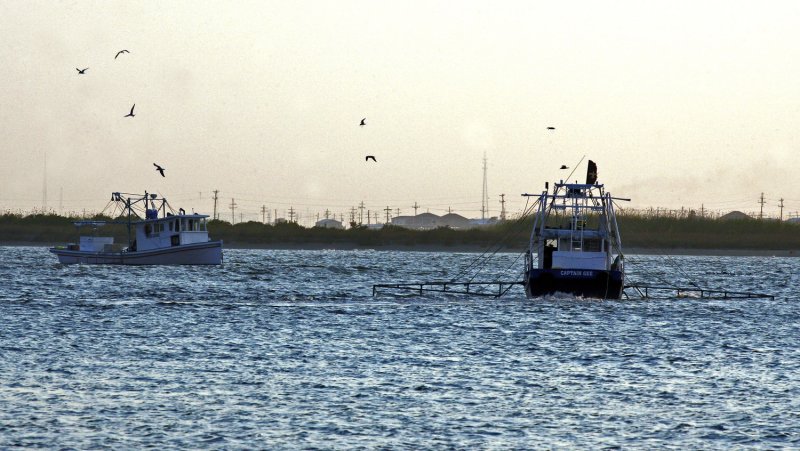1 of 3 | Shrimp boats drag their nets through the waters off Grand isle, Louisiana, April 18, 2010. Fishermen have begun to return to the island a year after the explosion of the Deepwater Horizon, which killed 11 men working on the platform and caused an underwater leak that gushed 53,000 barrels of oil a day for three months. UPI/A.J. Sisco. |
License Photo
WASHINGTON, Oct. 6 (UPI) -- A task force on restoring the ecosystem along the U.S. Gulf Coast outlines an agenda that could reverse 80 years of mismanagement, an official said.
U.S. President Barack Obama last year created a task force to examine the gulf ecosystem. The task force is made up of officials from five states along the coast and 11 federal agencies.
Garret Graves, vice chairman of the task force and chairman of the Coastal Protection and Restoration Authority of Louisiana, said a draft report outlines recommendations for critical issues like river management and channel bank stabilization.
"The report attempts to begin reversing 80 years of mismanagement," he said in a statement.
The report outlines steps needed to stop the loss of wetlands, reduce the flow of nutrients into the Gulf of Mexico and "enhance resiliency" of the coastal communities. The draft is available for public review and feedback through Oct. 26. A final version is set for a December release.
"Even before last year's oil spill, the Gulf of Mexico endured decades of decline that threatened the environmental and economic health of this region," said Lisa Jackson, administrator of the Environmental Protection Agency.
"This strategy is designed to prepare the region for transitioning from a response to the spill into a long-term recovery that supports the vital ecosystem and the people who depend on it."















